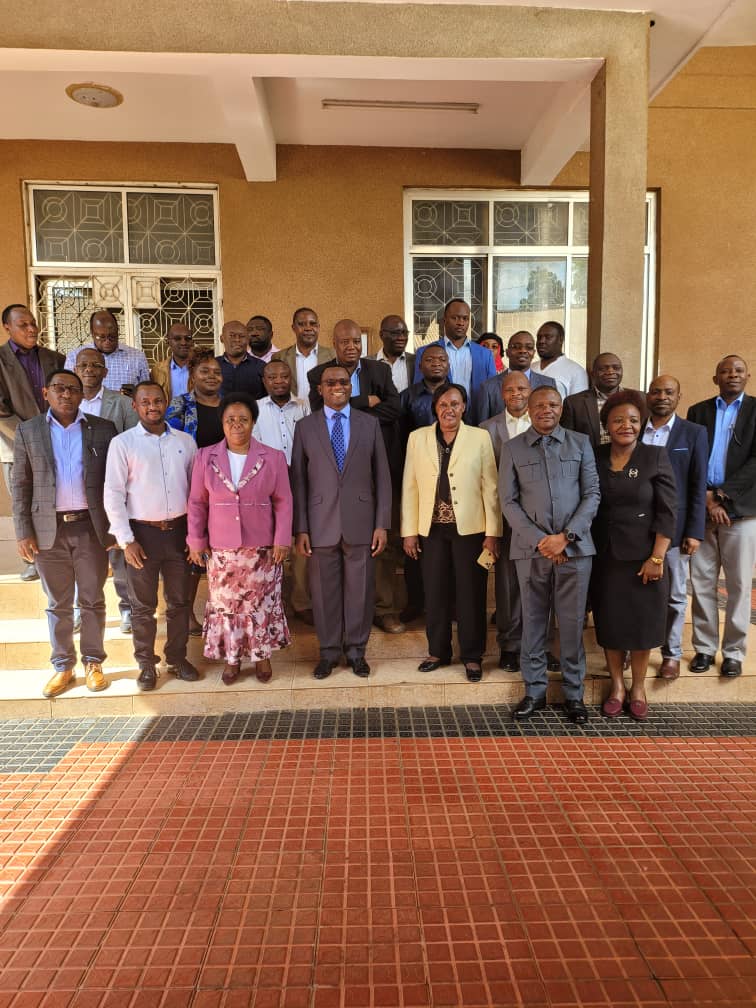Tanzania to fast-track forest certification
Tanzania is set to fast-track forest certification to take care of forests and ensure a sustainable supply of forest products and services.
Government officials and other key stakeholders in Tanzania have welcomed forest certification as a timely intervention in Tanzania's effort to ensure the maintenance of the forest area for a sustainable supply of forest products and services.
Speaking at a two-day awareness and training workshop on forest certification for high-level government officials and agencies in Tanzania organized by the Forestry and Bee Keeping Division (FBD) in June 2021, Dr. Ezekiel Mwakalukwa, Director of FBD, Ministry of Natural Resources and Tourism (MNRT) revealed that while Forest Certification is not a new concept in Tanzania, it has not been adequately utilized for improved management of Tanzania’s forest resources despite the declining trend of these forests. There is also inadequate knowledge and understanding of certification and its benefits at various levels.
The workshop aimed to create awareness on the role of forest certification in improving responsible forest management and the benefits thereof; and to equip government officials, agencies and other key stakeholders in Tanzania with knowledge and tools required to implement the FSC Forest Management Certification system. Attendees came from a wide range of government, academic and civil society organizations*. The workshop was supported by the Forest Stewardship Council™ (FSC™) Eastern Africa in collaboration with the Mpingo Conservation and Development Initiative (MCDI), and World Wide Fund for Nature (WWF) Tanzania.

In order to address some of Tanzania’s forest management challenges, the Ministry of Natural Resources and Tourism (MNRT) and FBD have decided to incorporate forest certification targets into the Ministry’s Strategic Plan (2021-2026) and the National Forest Policy Implementation Strategy (2021-2031) to fast track certification uptake and adoption. More so, Tanzania already has the necessary tools in place to implement forest certification and key to this, is the FSC’s National Forest Stewardship Standard (NFSS) of Tanzania Mainland which was approved by FSC in 2018. The Standard was developed by the Standard Development Group (SDG) for Tanzania composed of professionals from Tanzania Government, NGOs, private sector and individuals through a highly consultative and participatory process,” Dr. Mwakalukwa added.
Therefore, FBD and its partners are taking steps to create awareness about forest certification and equip government officers and other key stakeholders with the necessary knowledge and technical skills to initiate and implement certification projects using the FSC certification system.
Declining forest cover
Tanzania ranks 20th globally as a highly forested country. The country has the largest forest cover in the East African Community (EAC) region, totaling more than 46 million hectares, i.e. 55% of Tanzania’s total land area, of which, 20% are productive forests. The forest sector contributes 3-4% of Tanzania’s Gross Domestic Product (GDP), and expected to rise to 10-15%. The sector employs about 3 million people, in addition to supporting a large proportion of the country’s growing population who depend on the forests for the provisioning of various products such as firewood, building materials, and food. Tanzania’s population is estimated at 58.8 million, with an annual growth rate of approximately 3.0%.
However, Tanzania is losing its forests at an unprecedented rate. The country continues to experience deforestation levels that are globally worrying, to the extent, it has been projected to be at risk of losing its total natural forest cover within 50-80 years if the current rates of deforestation and forest degradation are not reversed.
For this reason, FBD the body with the overall responsibility for the management of the forestry and beekeeping sectors on mainland Tanzania is taking bolder steps to reduce the rampant forest loss through the adoption of innovative tools for responsible forest management such as forest certification in line with the targets of the new Forest Policy Implementation Strategy 2021-2031.
Skilling government officials on forest certification
In addition to supporting the high level awareness and training workshop on forest certification conducted in June 2021, which equipped government officials, agencies and key stakeholders with knowledge and technical skills to initiate and implement forest certification, FSC Eastern Africa, in July and October 2021, sponsored two staff selected by FBD on a five-days FSC Forest Management full certification course. This is a key step in skilling FBD initiate certification pilots in selected forest blocks, in line with the MNRT Strategic plan (2021-2026) and the Forest Policy Implementation Strategy 2021-2031.
Together, FSC Eastern Africa, FBD, WWF Tanzania and MCDI plan to continue certification workshops and trainings at zonal level in Tanzania, to cover the Southern highlands, Northern, Eastern and Western Zones.
As of November 2021, Tanzania has 3 Forest Management /Chain of Custody certificates (FM/CoC) totaling over 270,000 hectares of certified forest area; and 3 Chain of Custody (CoC) certificates including one for wood charcoal (briquettes).
For more information, please contact Annah Agasha, email: a.agasha@fsc.org
*Attendees: Forestry and Bee Keeping Division (FBD), Ministry of Natural Resources and Tourism (MNRT, Tanzania Forestry Services Agency (TFS), Tanzania National Parks Authority (TANAPA), Tanzania Forestry Research Institute (TAFORI), Forestry and Value Chain Programme (FORVAC), Participatory Plantation Forestry Programme, Regional and Local government Authorities, Academia and Non-Governmental Organizations including Tanzania Forestry and Conservation Group (TFCG), Forestry Development Trust (FDT) and National Forestry Advisory Committee (NAFAC), which advises the Minister on pertinent policy matters on forestry in the country.
